With the incredible speed at which technology is advancing and changing how we live, it’s crucial that we understand the impact that all of this is having – and is going to have – on how we work and learn.
And perhaps nobody is more well-versed in addressing this topic than internationally known speaker, writer, and thought leader, Heather McGowan. Heather is an innovator, synthesizer, and leading voice related to the context and impacts of accelerated change and she uses single frame visuals to help people process information more effectively.
In this episode of the Leading Learning podcast, Jeff talks with Heather about the intersection of the future of learning and work including why the type of change we are going through now is different from what we’ve experienced in the past, what we should expect to see related to this in the future, and how to better prepare for it.
To tune in, just click below. To make sure you catch all of the future episodes, be sure to subscribe by RSS or on iTunes. And, if you like the podcast, be sure to give it a tweet!
Listen to the Show
Read the Show Notes
[00:18] – Our sponsor this quarter is ReviewMyLMS, a collaboration between our company, Tagoras, and 100Reviews, the company that is behind the very successful ReviewMyAMS site. As the name suggests, ReviewMyLMS is a site where users can share and access reviews of learning management systems, but in this case, the focus is specifically on systems that are a good fit for learning businesses, meaning organizations that market and sell lifelong learning. Contribute a review and you will get access to all existing and future reviews—there are already more than 100 on the site. And, if you don’t have review to contribute, there is also a subscription option. Just go to reviewmylms.com to get all the detail.
[01:27]– Highlighted Resource of the Week – 10 Critical Shifts in the Market for Lifelong Learning – a free Tagoras resource which highlights 10 trends that are impacting, and will continue to impact, the landscape for learning businesses.
[01:55] – A preview of what will be covered in this podcast where Jeff interviews Heather McGowan, internationally known speaker, writer, and thought leader, about the future of work and learning.
[03:28] – Introduction to Heather and some additional information about her work and why she does it.
The Velocity of Change and Why it Matters
[06:12] – Every generation has lived with a lot of significant change. What’s different about change now? Why do we need to be more concerned about it than in the past?
Heather explains that what’s different now is the speed of what’s happened and, more importantly, the speed of what’s going to happen. A lot of people refer to what we’re moving through as moving from linear to exponential change.
Previous generations may have had one to two paradigm shifts that would last in a hundred year increments, but we are now looking at three to five paradigm shifts that may take place in a single generation—and in a time when we’re living a lot longer.
She talks about how much has changed in just the past ten years using the example of the iPhone. To explain the difference between linear and exponential change she says if you look at 30 meters and then took 30 steps, you’d be about 30 meters (30 linear steps). But if you took 30 exponential steps, you’d be 27 times around the globe—and that’s the kind of change we are starting to experience.
[08:49] – Can you talk a bit more about how you’ve already seen the nature of work change and what we can expect going forward in the next decade and longer?
Heather says if you look at a job, it’s a container of skills and knowledge and our education system was designed like a factory pipeline where we codify and transfer a set of predetermined skills and existing knowledge into an individual to create a deployable workforce. Whatever it was that we codified and transferred was, for the large part, sufficient to last what was your 20-30 year career arch.
You left university or post high school training and stepped on some sort of career ladder and you rode up but largely you relied on that single dose of education. Now we’re looking at trying to get people to do things that have never been done before. So the idea of codifying and transferring something to do a job that never existed before is really rocking our whole system of education, work, as well as society.
Learning Uncertainty
[10:45] – Can you discuss concept of learning uncertainty and what that involves?
Heather talks about how we’ve always defined ourselves by what we did. If you look back several generations, our last names were our occupation. She says it troublesome because we ask children what they want to be when they grow up or ask a student in university, even before they started, what their major is and to consume content that may be irrelevant by the time they graduate (when the debt won’t be). Also, when we speak to each other, we ask people what they do, which cements and calcifies an identity around the application of skills and knowledge at a moment in time.
When we’re looking at things changing really quickly and people having to adapt, Heather explains we’re still holding that identity that’s getting in our way. It’s now believed that if you lose your job, you’re going to go through a greater psychological challenge then if you lost your primary relationship. She recommends one of the first things we do is come up with better questions about how we really ask people what their purpose is, passion is, what their skills are, what they think they’re good at, and how that can be applied in a number of ways. If we can tap into that passion and purpose, that’s what’s going to keep the lifelong learning candle lit.
[13:00] – What else should you be doing to prepare for learning uncertainty? And does college even matter anymore? Is traditional higher-level education even the right path anymore?
Regarding traditional higher education, Heather says it does have a place. There is a certain amount of social development that takes place which is a lot of what college/university is about. Part of it is understanding who you are in the world, how you want to contribute to society, and what you’re skills and capabilities are. But we’ve become so frozen on capturing those for that first job, which she points out is becoming increasingly ridiculous when you realize the debt is going to last 30 years and the first job may last 18 months. She proposes academic institutions reinvent themselves more like gym memberships where you have a lifelong relationship so your education never really ends.
Heather also mentions she likes to use the word “learning” rather than “education” because education seems to have an end-point whereas learning tends to be continuous. To get ready for learning uncertainty, she says you need to acknowledge a more fluid and flexible identity defined by strengths and skills. Having self-awareness of these things are going to be increasingly important because learning is social and work is social so it’s no longer your individual contribution in isolation, it’s how you can contribute on a team.
The Learning Agility Imperative
[17:17] – Many of our listeners are going to be trade and professional associations—or organizations serving a particular field or industry to support the workers in that field or industry—how should those organizations be thinking differently about how they support or sustain workers throughout their careers? Do they need a different approach to the continuing education/professional development/lifelong learning business that they’re in?
Heather explains that we need a foundation in an agile learning mindset—the agency to understand that learning is your responsibility, a focus on developing – to the best of your ability – your uniquely human skills (ability to communicate, creativity skills, divergent thinking, empathy, etc.), and a real understanding of how businesses create value and how you personally create that value everyday in what you do. This agile learning mindset is foundational and she points out it wasn’t given to the current workforce—so we can fix it in K-12 and higher ed, but we still have the bulk of our workforce who don’t have this self-awareness and agency.
Heather adds that learning takes place in work every single day—not just when you have organized training—everyday you’re solving an exception to a problem, otherwise all of work would be automated. So what we need to do is a figure out how to capture that learning when it’s happening so people acknowledge that it’s happening. If we can figure out a way to make learning integral to work and then as we see what skills they need to develop, use the codify and transfer model and give people chunks of what they need in greater increments. So it’s not something learners go away to do, they take a piece of it and apply it everyday. Heather sees learning kind of blowing apart into these tiny fragments that are all around us and we’re using all the time. Now we need to figure out how to cover this landscape through the pieces that exist.
[21:02] – What are some of the implications when you no longer have that deep sense of identity around job—when something like mastery feels so elusive? How is that playing out in society?
Heather says this is one of the biggest potential “panic zones” that we’ve just begun to feel. If you look at the largest companies in the U.S. (Apple, Google, Amazon, etc.), the median age is 28-31, whereas the median age in the workforce is 40+. The high-value zone for an employee used to be 45-55 but now it’s probably 28 in the new economy companies. And the economic reality that people are living longer, so many older people aren’t stepping out. This means younger people aren’t getting into those high-value zone slots—so lots of pieces aren’t happening in the order which they should. Heather also talks about the idea of mastery as something that has moved from complicated to complex.
Visuals and Sense-Making
[25:23] – You have a great use of visuals to convey your ideas. Can you talk a little more about your personal process related to this?
Heather admits this can be a very frustrating process and it can take weeks for a visual to come to her, often at the moment she lets go of thinking about it. She explains the process of how her initial sketches get sent to people she collaborates with and then get turned into visuals that get revised through conversations, writings, and talks. Heather finds the visuals a highly effective way for her to make sense of things and for people to receive information and to digest it.
[27:39] – What is one of the most powerful learning experiences you’ve been involved in, as an adult, since finishing your formal education?
Heather shares that sometimes the most powerful types of learning are also the most painful. One experience was related to learning that most of communication is listening and paying attention to what the other person cares about. The other experience was when she lost her job which she attributes to being arrogant. She now looks at interactions to notice what others care about and whether she is adding value to whatever the situation is for their needs—a real shift from her to the other person.
[30:43] – How to connect with Heather and/or learn more:
- Website: www.heathermcgowan.net and www.futureislearning.com
- LinkedIn: www.linkedin.com/in/heathermcgowan
- Twitter: @heathermcgowan
[31:45] – Wrap Up
If you are getting value from the Leading Learning podcast, be sure to subscribe by RSS or on iTunes. We’d also appreciate if you give us a rating on iTunes by going to https://www.leadinglearning.com/itunes.
And we’d be grateful if you would take a minute to visit our sponsor for this quarter, ReviewMyLMS and, if you can, contribute a review to help others find the right platform for their needs.
Also, consider telling others about the podcast. Go to https://www.leadinglearning.com/share to share information about the podcast via Twitter, or send out a message on another channel of your choosing with a link to https://www.leadinglearning.com/podcast.
[33:49] – Sign off
See also:

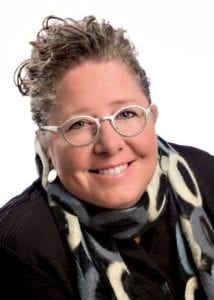
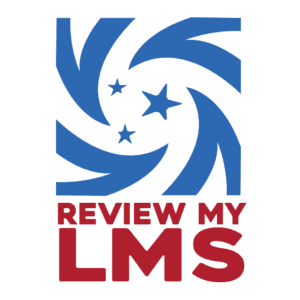
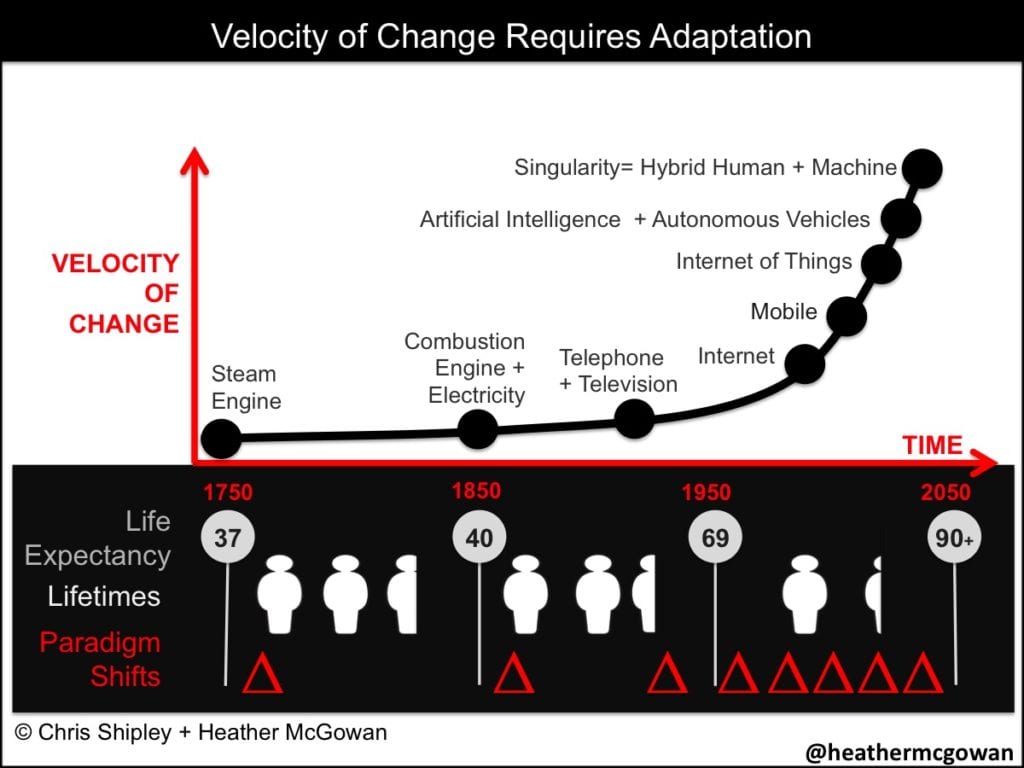
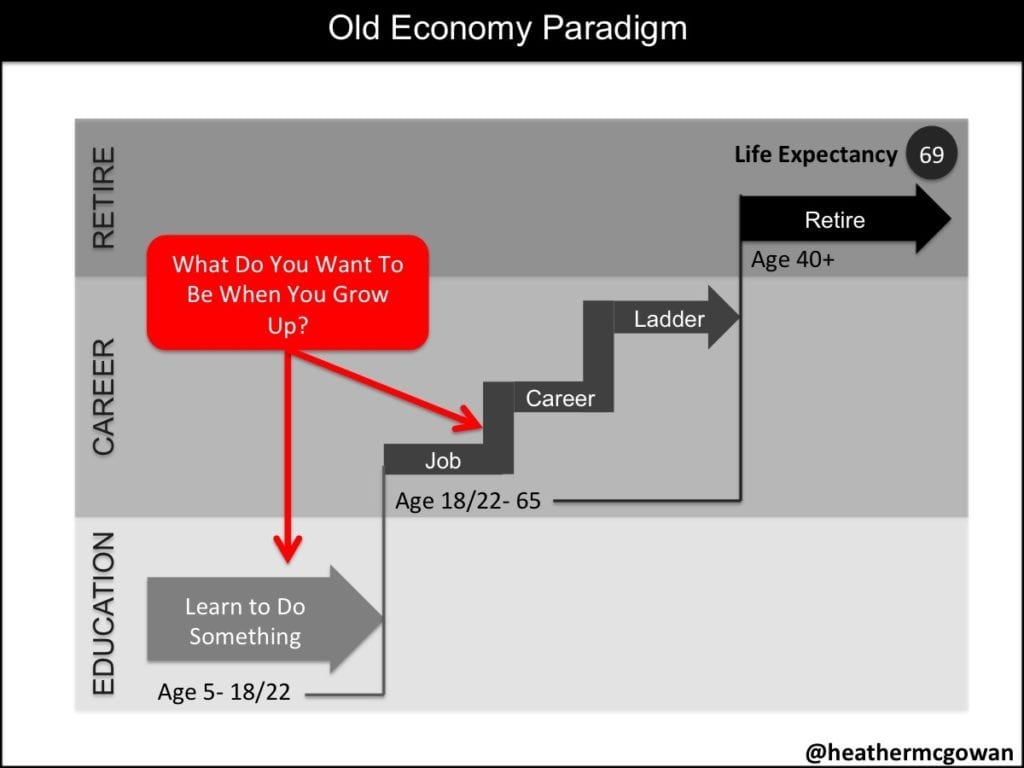
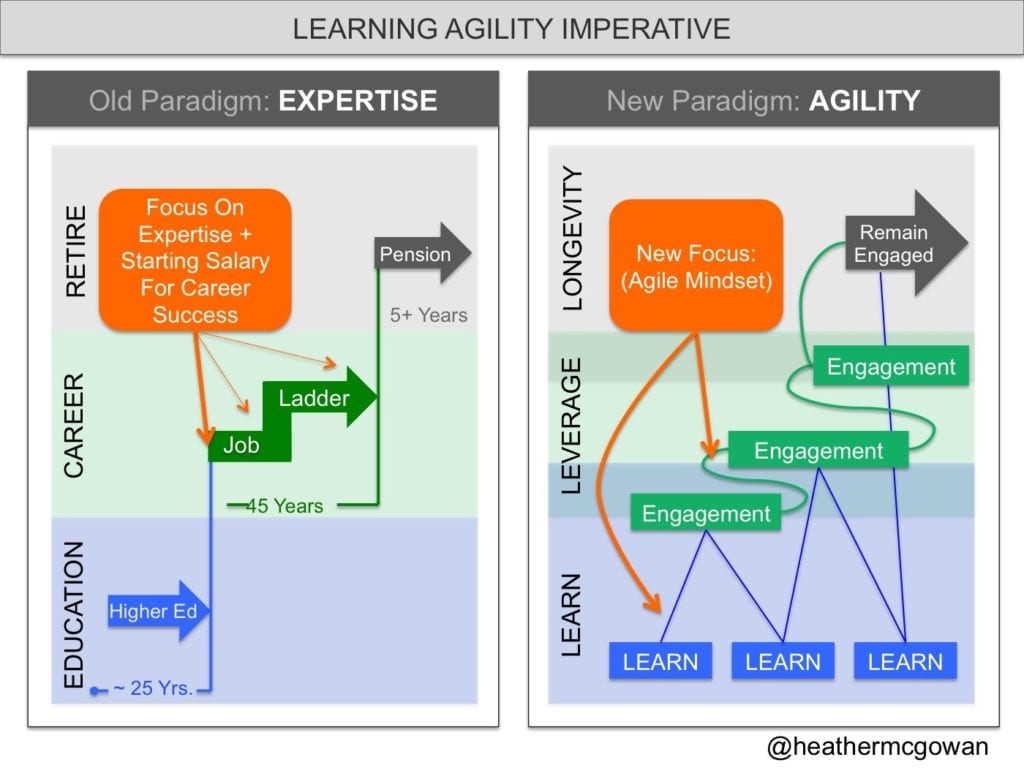
 The Learning Business Grand Slam
The Learning Business Grand Slam
Leave a Reply